Honest career advice from a design agency for students graduating this summer
Have you graduated in a creative subject this summer? Then you'll probably have been given tons of career advice by tutors, friends, family, and perhaps people you follow on social media.
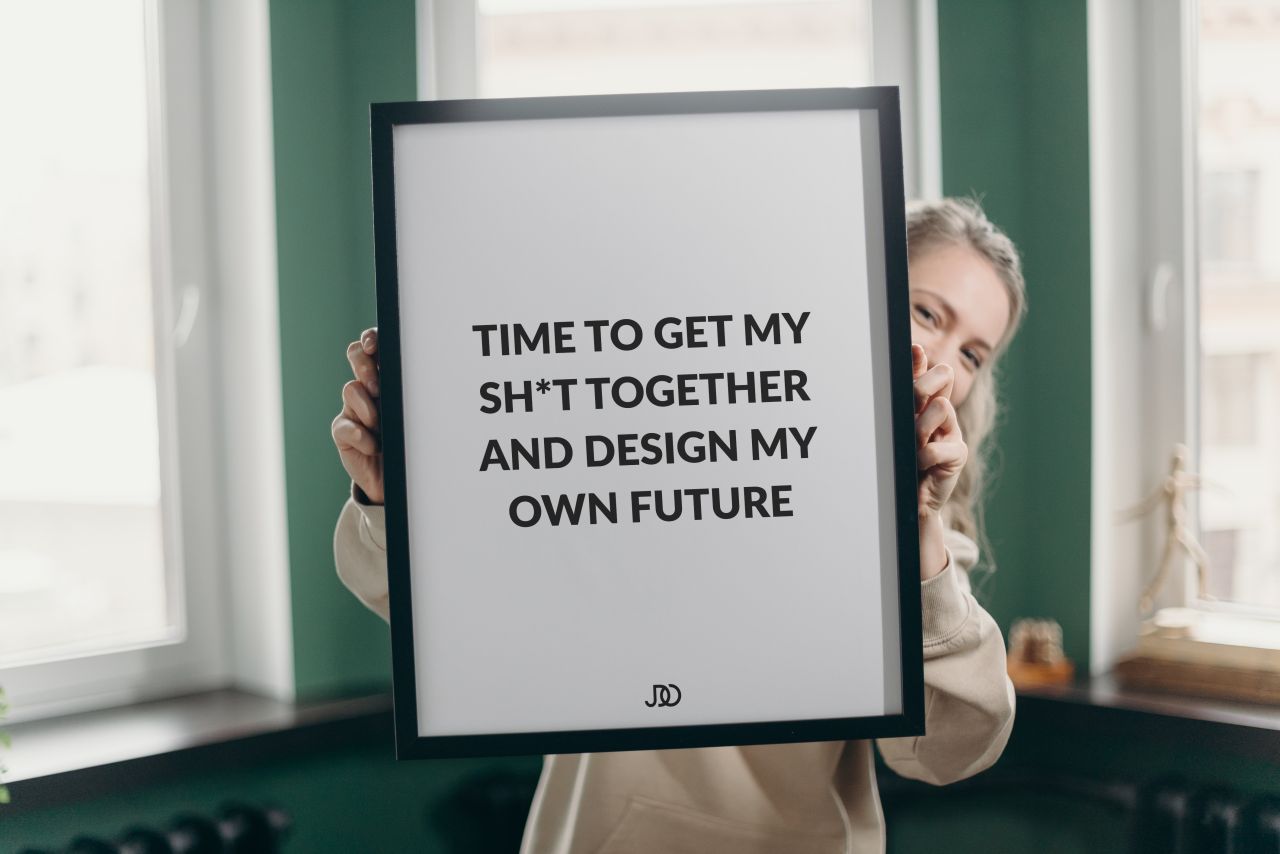
Image courtesy of JDO
But ultimately, there's one source of career advice that will be useful than any other. And that's the people who actually employ design graduates and get them started in the business.
So we were delighted when creatives at award-winning brand design and innovation agency JDO agreed to answer our questions about what they're looking for in new graduates and how those emerging from uni into the workplace this summer can boost their prospects of gainful employment.
JDO has a deep and enduring commitment to nurture and hire the best fresh graduate talent. "Graduates are the lifeblood of the creative industry," says Fiona Florence, managing director at JDO. "We love your shiny ideas; we love your creative thinking. Your creativity is raw and unbridled, but a lot of your skills in design will come from being in an agency environment, in a studio, surrounded by brilliant creatives who are nurturing and mentoring you through every project you work on."
Read on to discover the best career tips JDO have to offer to those graduating in creative subjects this year.
1. Treat portfolios like Instagram
When it comes to preparing your portfolios, there's one piece of advice that rings out above all others: make it punchy and impactful. "The key is to include just enough per project to demonstrate the idea, but not so much that the interviewer loses interest, or it becomes repetitive," says Sara Faulkner, associate creative director at JDO.
As Carli Pring, digital marketing manager at JDO, points out: "You have a few seconds to grab someone's attention. So your first project needs to provide the wow factor. Choose a project that will spark conversation, trigger emotion and leave a memorable impression. Think about what's trending, topical or drop-dead gorgeous.
"Visuals will cause a faster and stronger reaction than words," she adds. "A series of relevant images is worth a thousand words. If you can concisely convey the message of the project in few words, the better."
Bronwen Westrip, creative director at JDO, adds that you should: "Think of it like an Instagram feed. Your audience will go through your portfolio super quick when you send it through, so bear that in mind. Try to make it memorable and impactful. And always put your best project first."
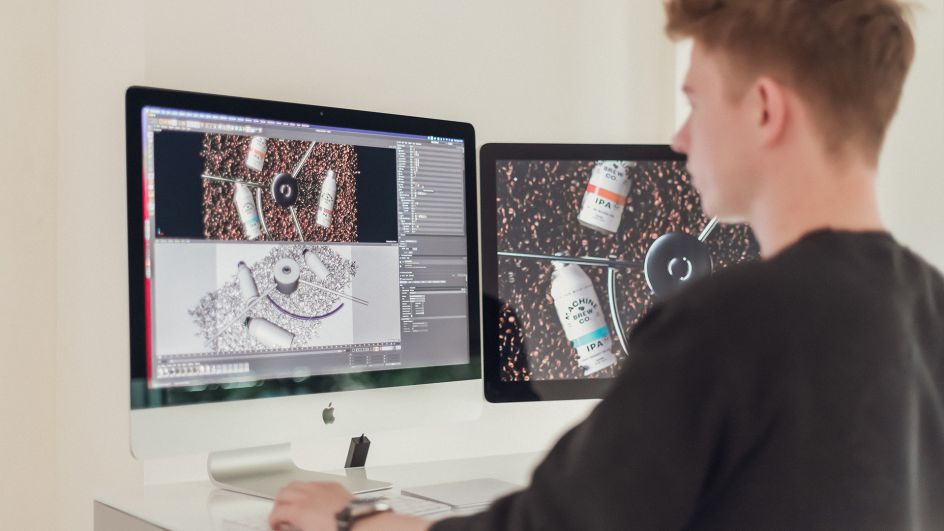
2. Paint a picture with your portfolio
A portfolio should not just be a collection of work, though: Carli explains that it should paint a picture of your skills and experience. "If you have a passion for, say, animation, Cinema 4D, brand activation and comms, show this in your portfolio. Not only will a unique skill set you apart from the crowd, but it will give the agency insight into how they can help you flourish in the right direction."
Malcolm Phipps, associate creative director at JDO, adds that you should: "Include a page of behind the scenes. This can be useful in understanding how you work. Include sketches, etc., of the ideas that got away; this gives us a better understanding of your ability in selecting and editing your work. Don't forget to design this page to look good too! Plus, only include work you are proud of. If it was a group project, be clear about your role in the group."
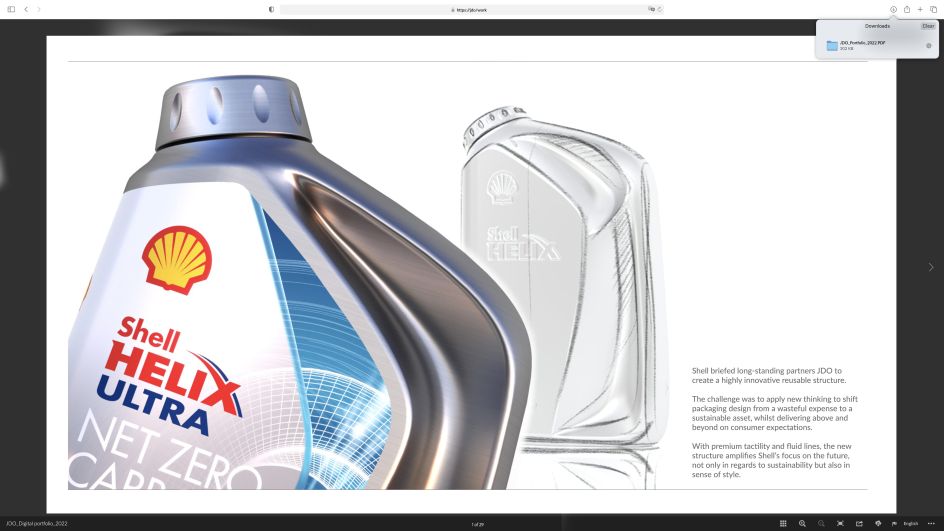
3. Get the format right
Perhaps as important as the content of your portfolio is the format. Carli adds that as well as a link to your digital portfolio, you should also provide a backup PDF at reasonable file size.
Why? "Firstly, because agencies receive multiple portfolios a day and a PDF is a quicker way to scroll through students' work. And secondly, agencies will file portfolios for a later date if they don't have a role at the time but think someone is of interest. If you only send a link to your digital portfolio, it will be lost in a sea of emails."
An interview isn't an interrogation; it's a chance for an agency to paint an accurate picture of who you are, what you're looking for and why you'll be a perfect fit for the role.
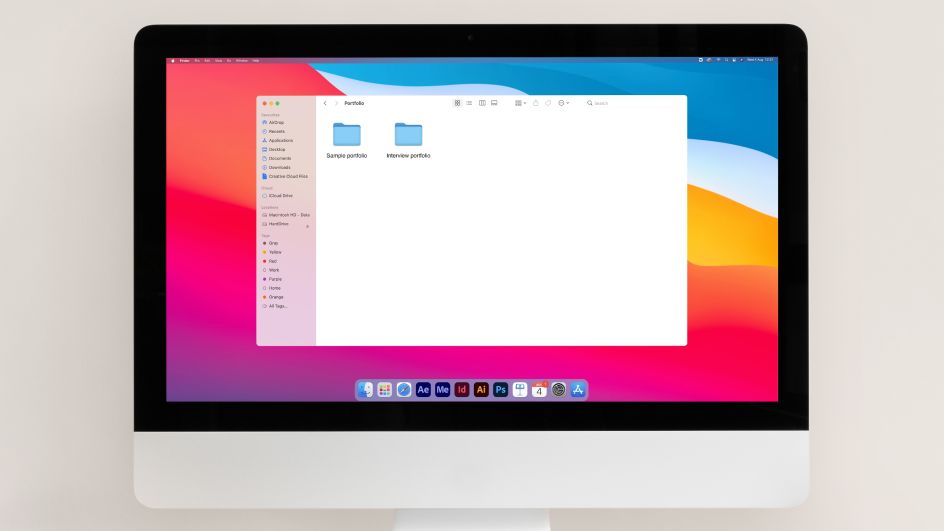
4. Prepare two portfolios
Social media and content junior designer Brogan Algar advises that you prepare two portfolios. "Your first one is the sample portfolio which you apply to jobs with and send out as a little taster," she explains. "This is around four to six projects. You also have your main portfolio, which you'd have with you at an interview. This should have around two additional projects (six to eight), so you've got a little extra something to show them that they haven't already seen.
"For me personally, my sample portfolio has the normal intros at the start, with a small amount of information throughout to explain the projects when I'm not there. My main portfolio also has an introduction to each project but is then just image/video, as I can talk through each project without any information."
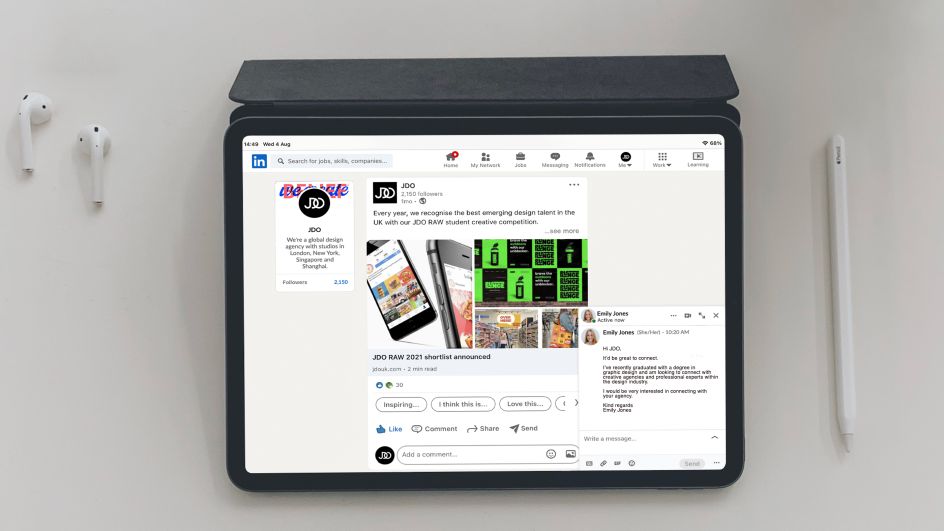
5. Promote yourself on social media
Are you struggling to get an interview? Then Sara advises you to milk social media for all it's worth.
"Post your work online, on Instagram, LinkedIn, and so on," she advises. "Interact with agencies you like because that's how they can spot you. Don't be afraid to connect with professionals, agencies or fellow graduates. Networking is a great way to make connections. Contact agencies or professionals, and ask them if you can show them your portfolio. There's nothing to lose doing this, only gains."
Carli adds that: “It's essential that you continue to showcase your core skills. Agencies will be looking for designers with a desire to learn and a willingness to be challenged. Entering creative awards can provide prestigious recognition, help you raise your profile, demonstrate your creative ability, and ultimately attract agencies. Nonetheless, setting yourself conceptual briefs and designing for the love of design will provide you with self-promotional content on Instagram, keep your designs fresh and exercise your creativity."
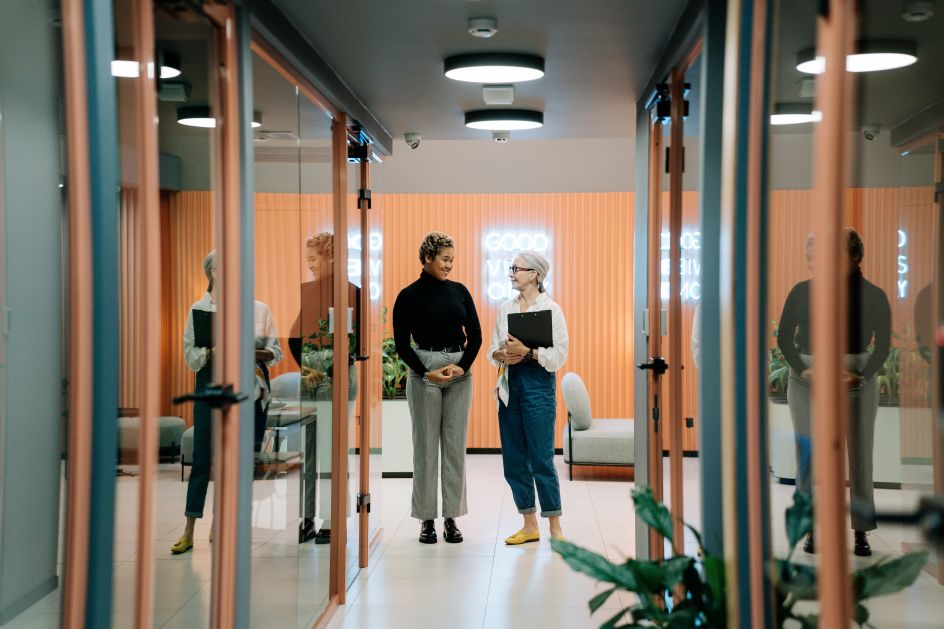
6. Don't be nervous about interviews
Once you get an interview, there's no need to be nervous. "We generally have an idea of your skills and experience from your portfolio," says Carli. "So an interview isn't an interrogation; it's a chance for an agency to paint an accurate picture of who you are, what you're looking for and why you'll be a perfect fit for the role. Remember – if an agency has offered you an interview, they are already interested in you; they want you to do well."
She admits that "Interviews can be dawning, and even the most confident people feel uneasy. So the most important thing is preparation. Choose one or two projects you are going to talk about in your portfolio and rehearse the brief, challenge and most importantly, solution. If you can show you're capable of project resolution, your sparkly ideas become a benefit worth selling."
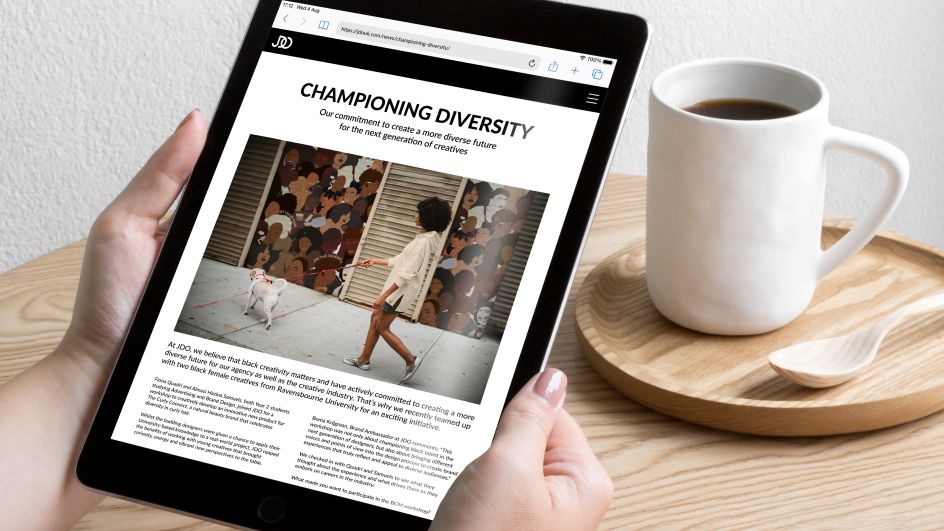
7. Do your research and sound passionate
It's vital to properly research the company interviewing you, Carli adds. "Does the design agency you're interviewing for specialise in packaging design and/or brand identity? Do they have a company ethos, a standing point? Is there a piece of recent news they've spoken about, a recent rebrand or product launch? Is there a client they work with that you have a little bit of consumer insight on? Remember what first attracted you to the agency and let them know."
Malcolm Phipps, associate creative director at JDO, says: "My best advice for interviews is to be yourself and to think of just three things you'd like to say about each piece of work. The more you present, the easier it will become."
Bronwen adds this: "Sound like you are passionate, enthusiastic but also ready to listen. Have at least one question prepared in advance: you may not get the time, but it's important if you do. Present your work clearly and with confidence. And don't forget we've all been there, so try not to feel intimidated!"
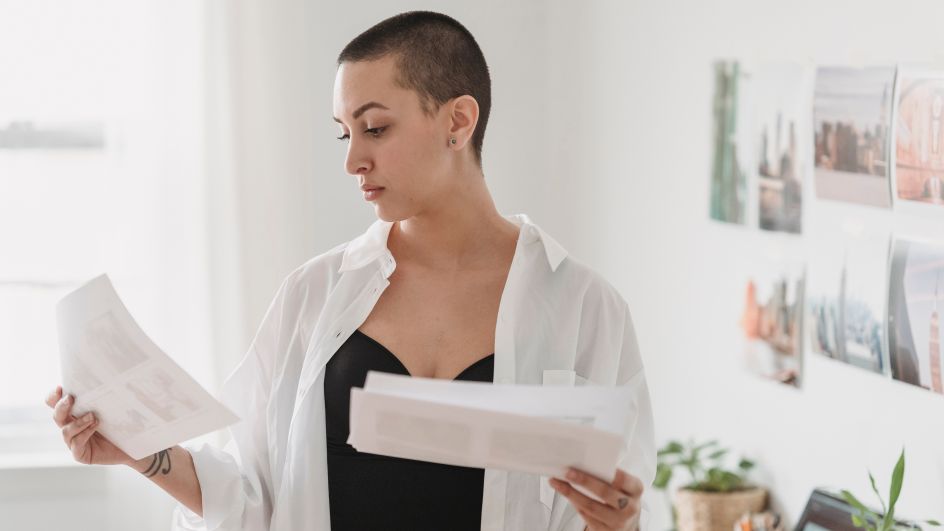
8. Practise beforehand
Still stressed about interviews? Then take the advice of Jake Boreham, junior image and motion visualiser at JDO, and practise introducing your projects to your friends and family. "If you can convince them it's a great idea and something you care about, you're already halfway there," he reasons. "In my experience, being shy, lacking confidence or being unsure about creative decisions only casts doubts over you as a designer. If you don't believe in your ideas, no one else will."
Jake adds: "Dress for the job you want, not the job you have. Eye contact, good manners, preparation, note taking and good questions are essential. And don't be afraid to discuss outside interests. Everything you spend your time on informs your practice and your work. And these things tend to offer a good insight into whether you fit into an existing studio's culture."
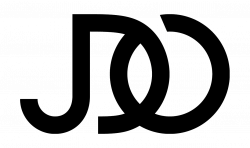


















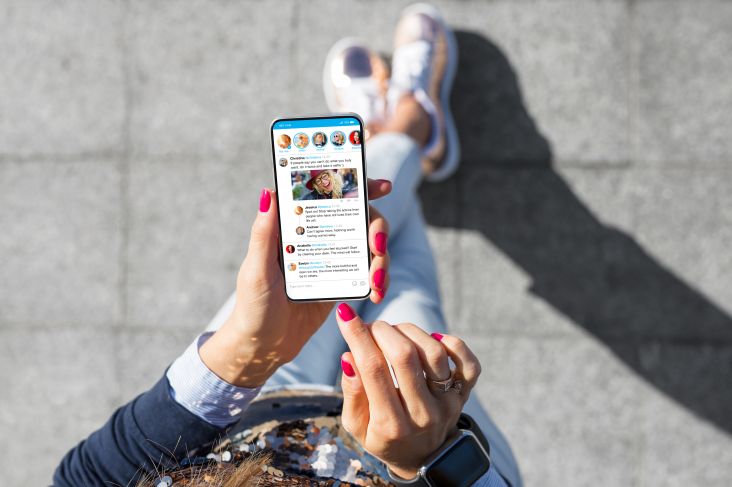
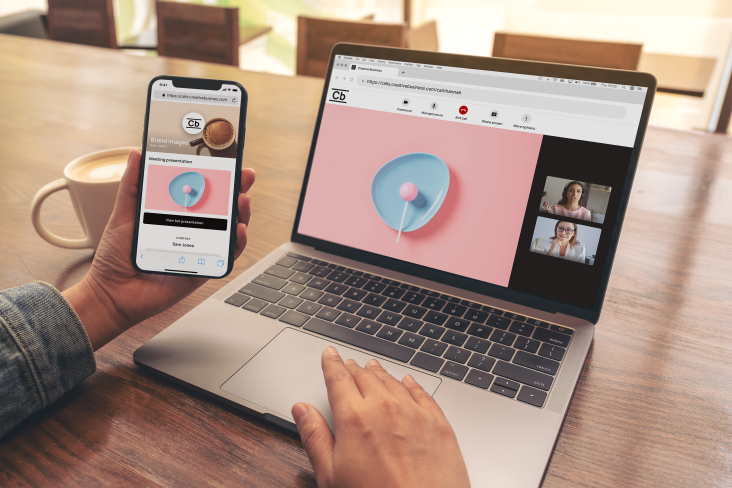
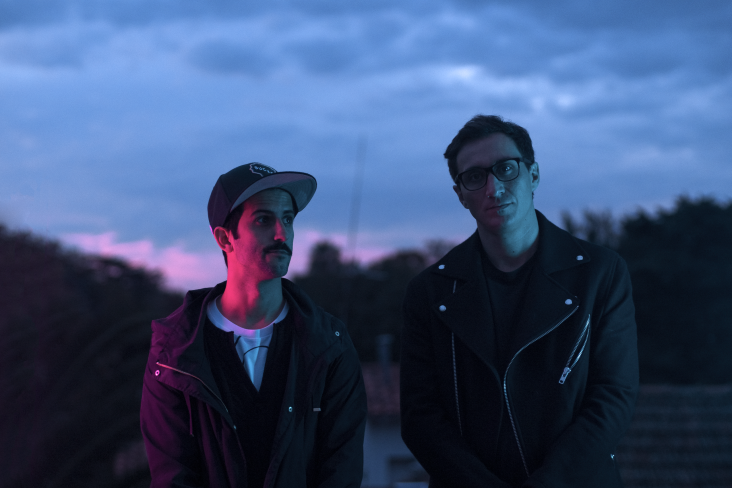
. Photo: Jess Shurte](https://www.creativeboom.com/upload/articles/07/07861485c649ad816399cf654ea8eeac08af261d_732.jpg)


